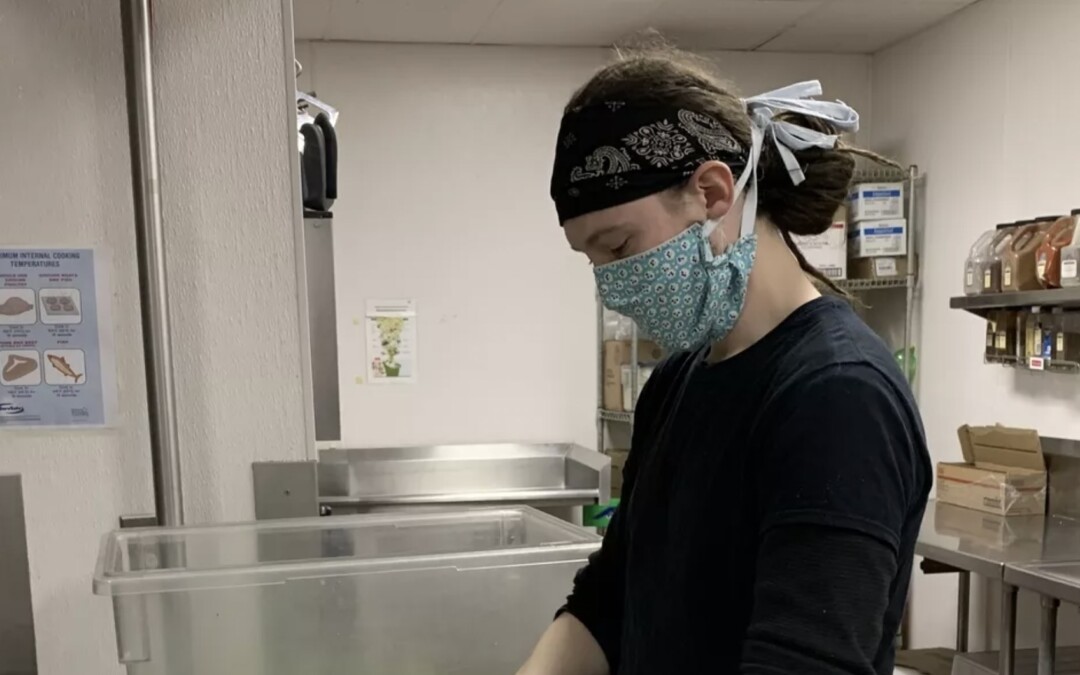While volunteering may be performed with the intention of helping others, studies show that those who give of themselves also receive.
Researchers have measured the benefits that volunteers receive, including the positive feeling referred to as “helper’s high”, increased trust in others, and increased physical and mental health. Research has shown a strong correlation between volunteering and health: those who volunteer have lower mortality rates, greater functional ability, and lower rates of depression than those who do not volunteer.
Improve Mental and Physical Health By Volunteering
Below are just a few ways volunteering can improve your mental and physical health.
1. Volunteering Builds Community
According to the Corporation for National & Community Service, you strengthen your community and your social network when you volunteer. You make connections with the people you are helping, and you cultivate friendships with other volunteers.
At Mel Trotter Ministries we believe it is important to build relationships with one another and our guests. This helps our guests as they transition out of homelessness. It’s important that they have a support system during this trying time.
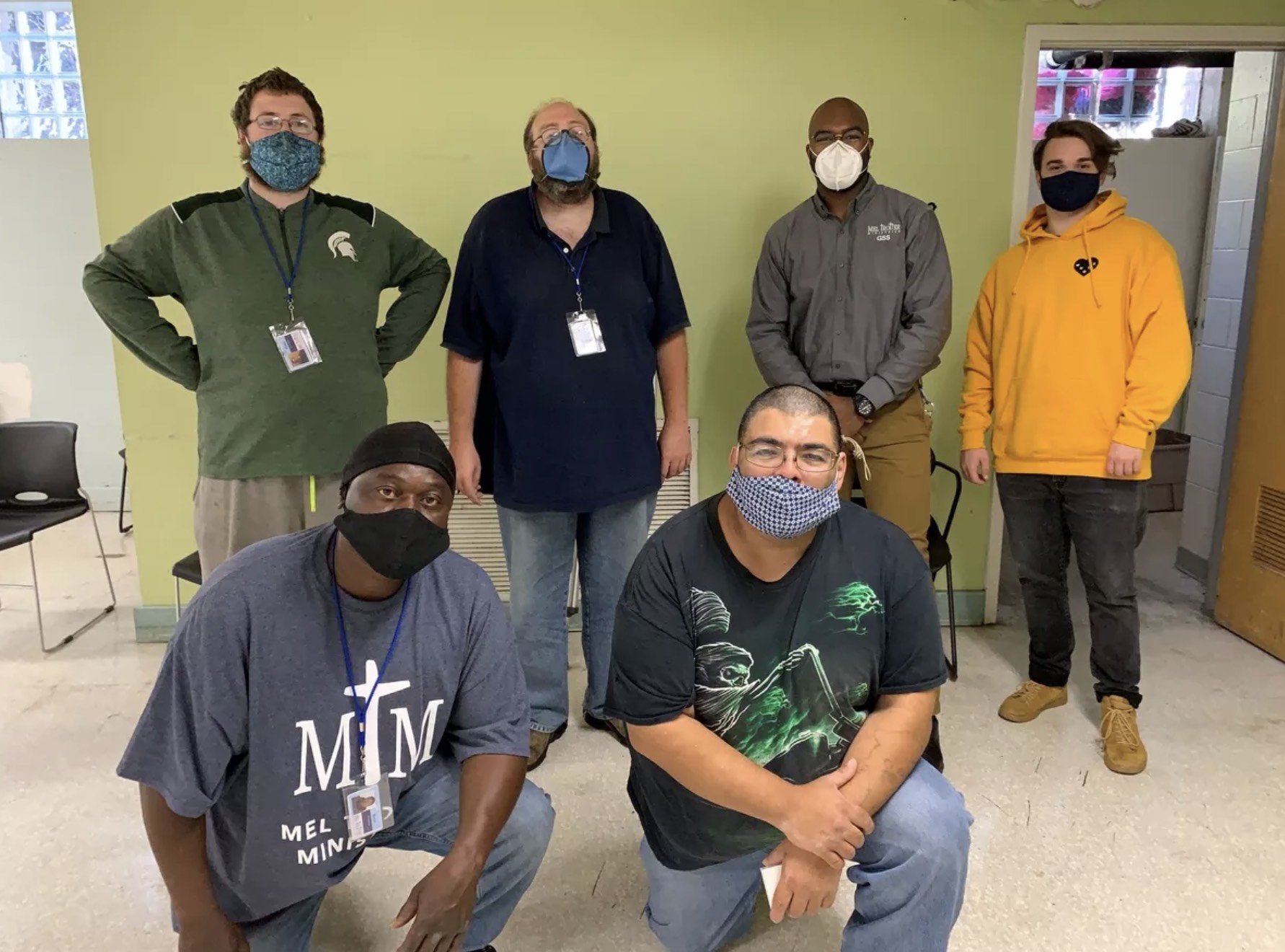
2. Ends Loneliness
The Campaign to End Loneliness says that close to 45 percent of people in the US and the UK admit to feeling lonely. On top of that, one in ten adults reports that they have no close friends. Loneliness and social isolation are two of the most severe epidemics in the world today. The simplest way to reverse this? Volunteer!
If you are looking to volunteer at Mel Trotter Ministries, we have opportunities that span multiple areas of the Mission. While many of these volunteer opportunities have changed due to COVID-19, we still have wonderful ways that you can help serve the individuals God has called on us to help. If you have any questions regarding open opportunities or would like to learn more about our safety precautions, please reach out to our volunteer coordinator, Dawn VanHorn at 616-588-8723 or [email protected].
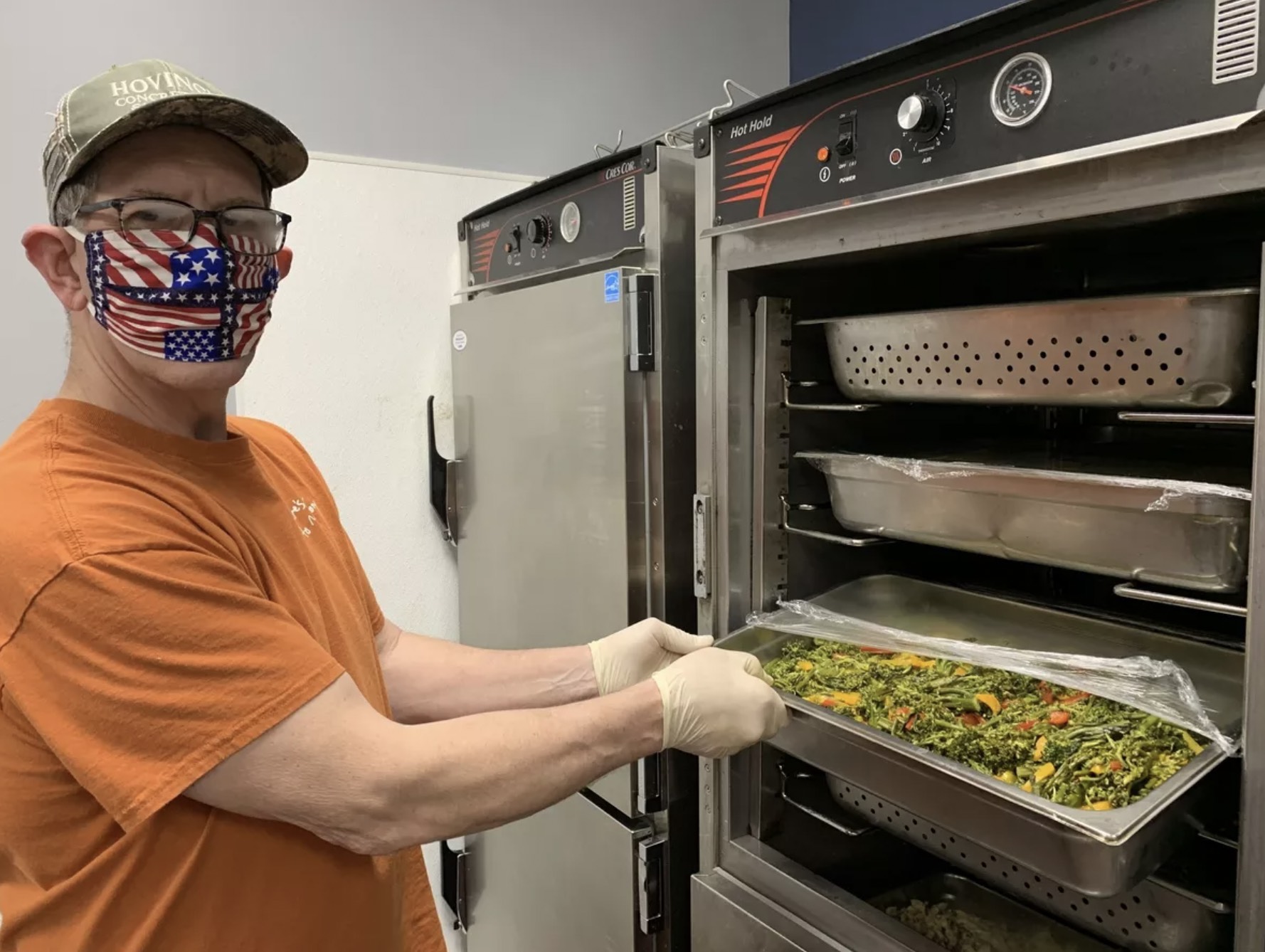
3. Builds Bonds, Creates Friends
Volunteering creates stronger bonds between friends, family, and coworkers. People build closer relationships, better connections, and more powerful attachments to people when they work together. If you feel the need for deeper connections with other people, try volunteering. You might live longer and be happier.
The Heartside Art Gallery and Studio is in need of volunteer help. Learn more here.
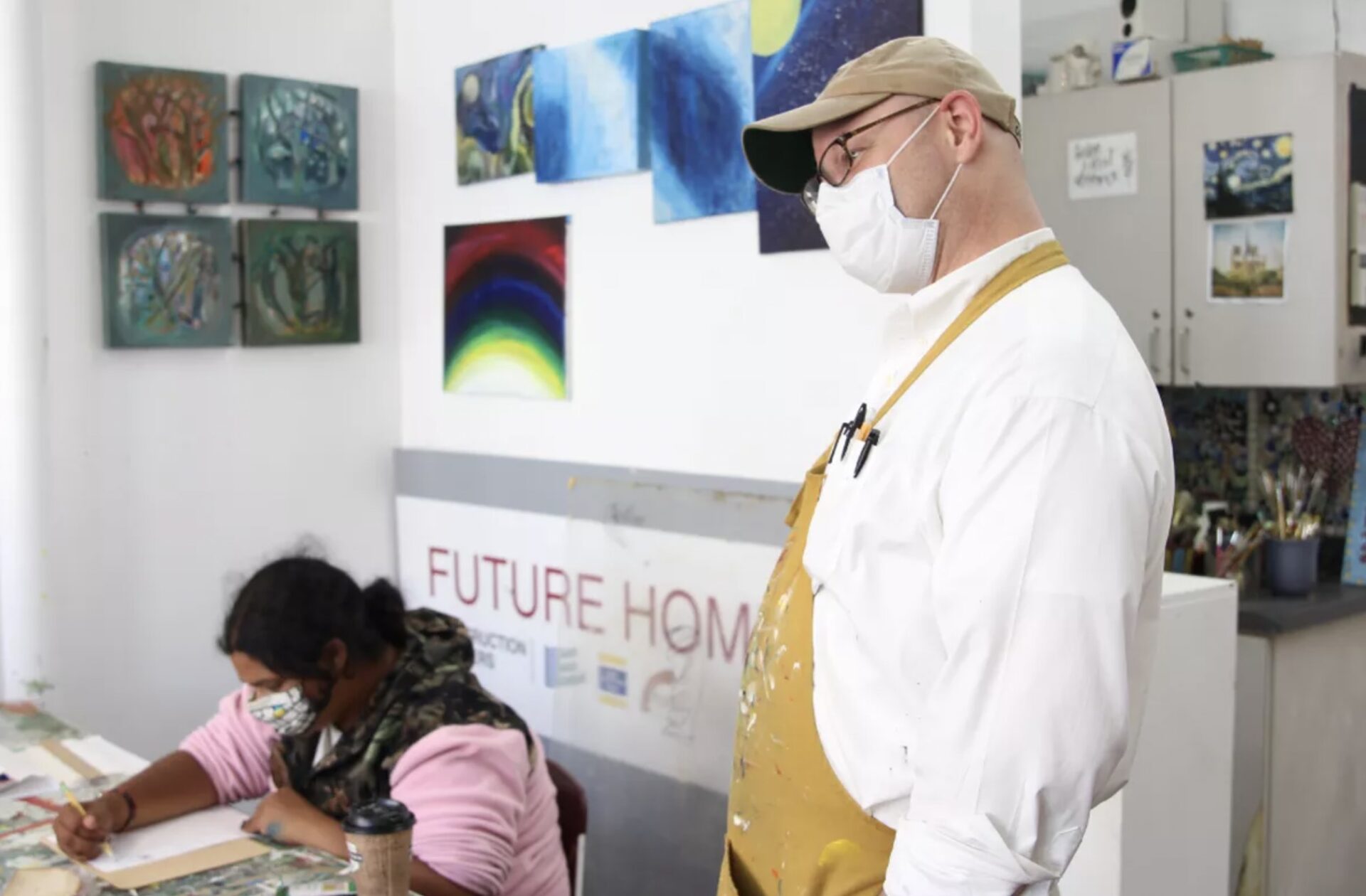
4. Develops Emotional Stability
Depression, Post-Traumatic Stress Disorder, low self-esteem, and even Obsessive Compulsive Disorder have all been helped by volunteering. When people with OCD, PTSD, or anger management volunteer, they feel more connected to others. They have an increased sense of purpose. Connection and meaning translate to decreased symptoms and improved social function.
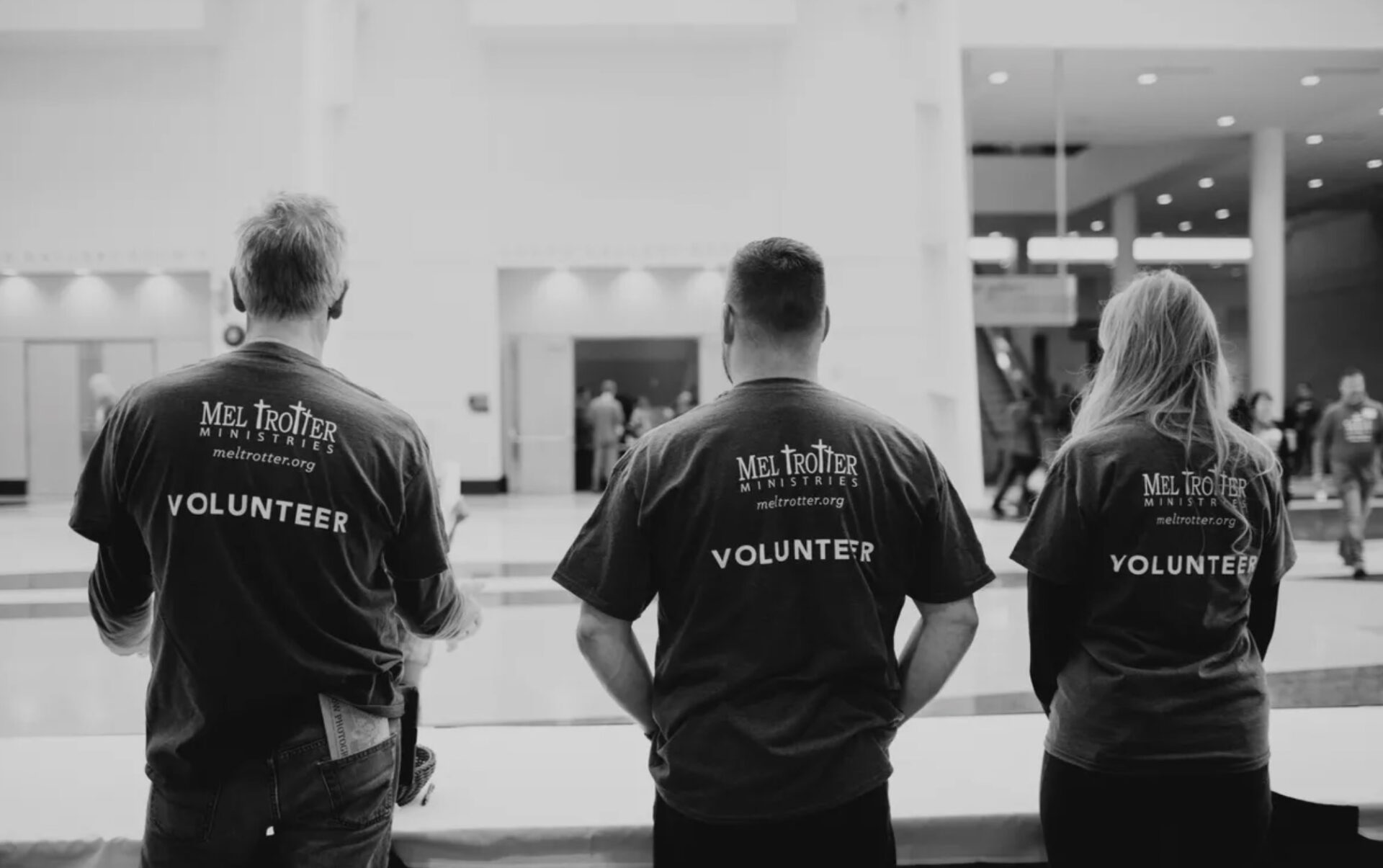
5. Promotes Longevity
While everyone benefits from a little boost in physical health, long-term volunteers have longer lives, less disease, and better overall health. One report says that people who volunteer over 100 hours a year are some of the healthiest people in the U.S.
Volunteering helps counteract the effects of stress, anger, and anxiety. The social contact aspect of helping and working with others can have a profound effect on your overall psychological well-being. Nothing relieves stress better than a meaningful connection to another person.
Volunteering combats depression. Volunteering keeps you in regular contact with others and helps you develop a solid support system, which in turn protects you against depression.
Volunteering makes you happy. By measuring hormones and brain activity, researchers have discovered that being helpful to others delivers immense pleasure. Human beings are hard-wired to give to others. The more we give, the happier we feel.
Volunteering increases self-confidence. You are doing good for others and the community, which provides a natural sense of accomplishment. Your role as a volunteer can also give you a sense of pride and identity. And the better you feel about yourself, the more likely you are to have a positive view of your life and future goals.
Volunteering provides a sense of purpose. Older adults, especially those who have retired or lost a spouse, can find new meaning and direction in their lives by helping others. Whatever your age or life situation, volunteering can help take your mind off your own worries, keep you mentally stimulated, and add more zest to your life.
Volunteering helps you stay physically healthy. Studies have found that those who volunteer have a lower mortality rate than those who do not. Older volunteers tend to walk more, find it easier to cope with everyday tasks, are less likely to develop high blood pressure, and have better thinking skills. Volunteering can also lessen symptoms of chronic pain and reduce the risk of heart disease.

